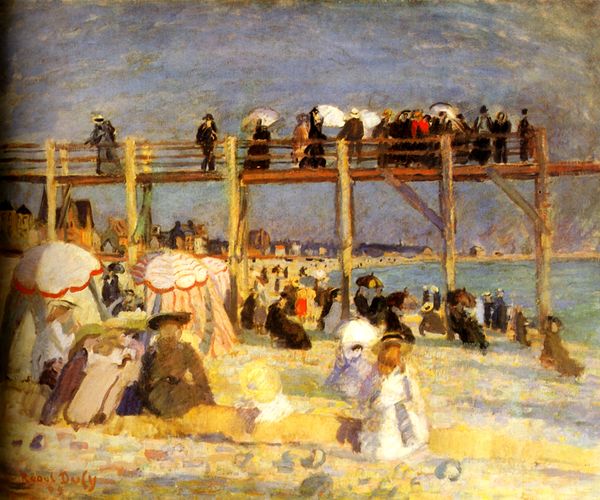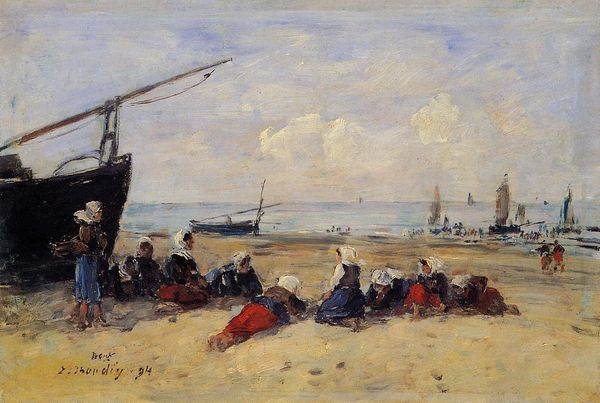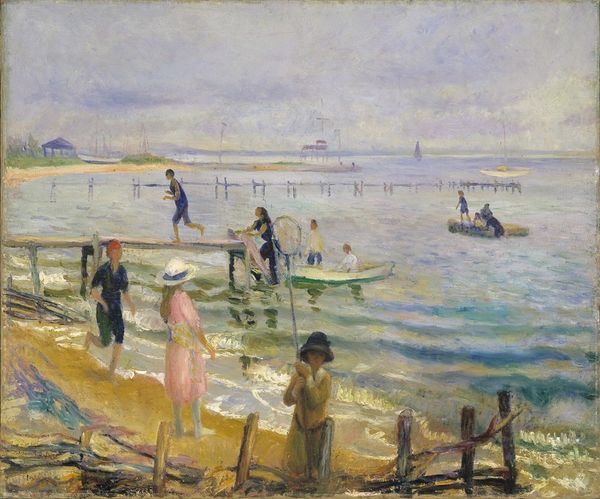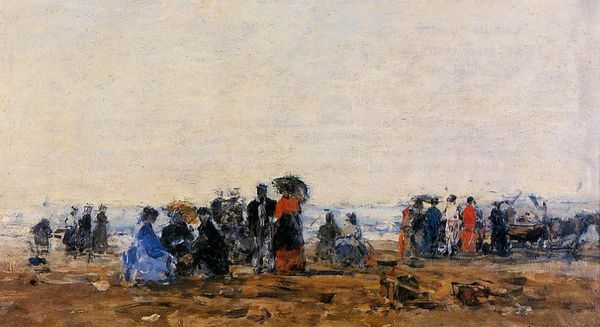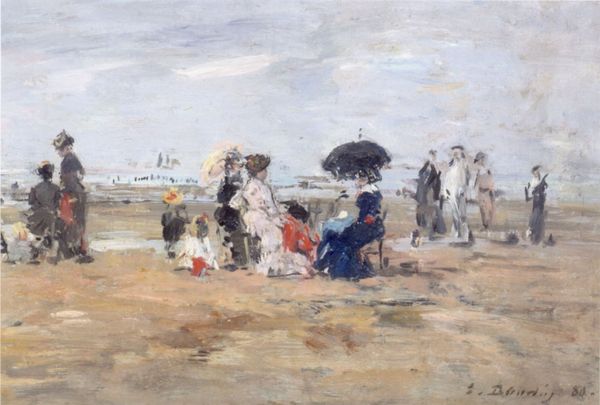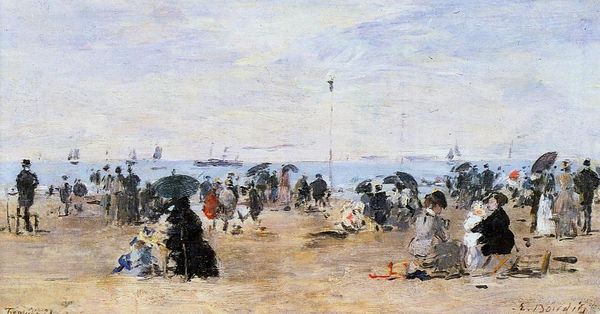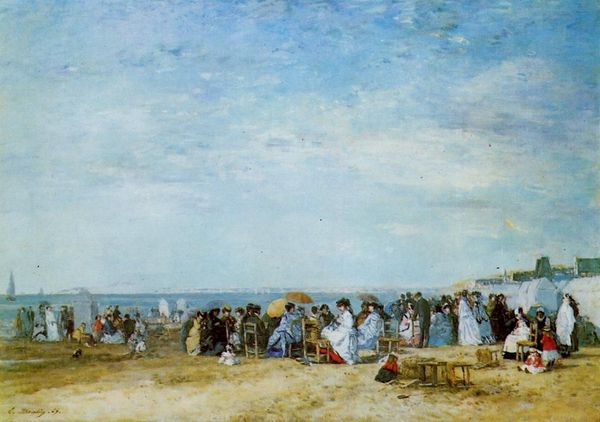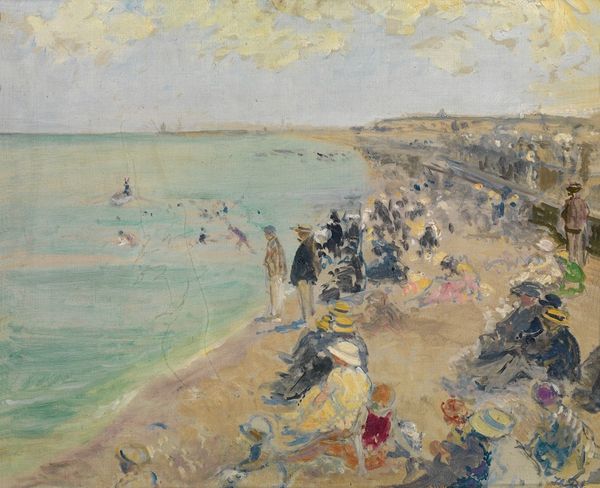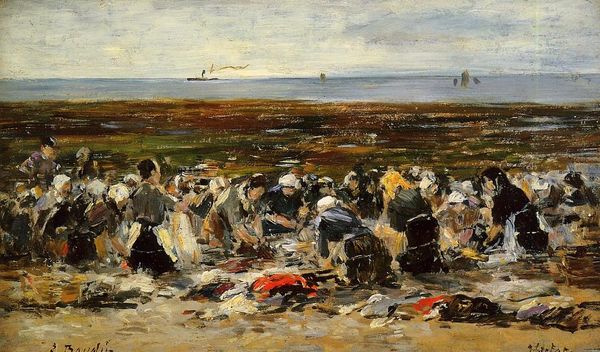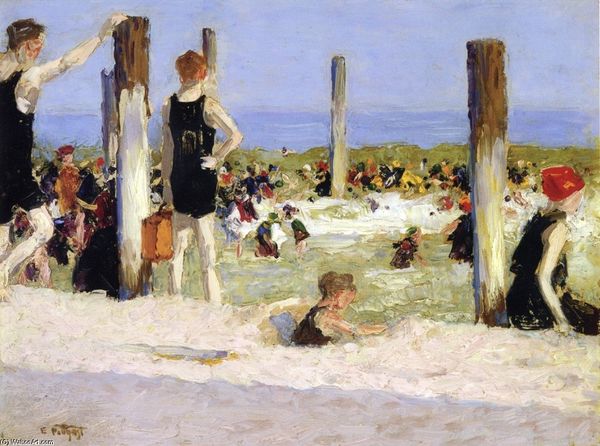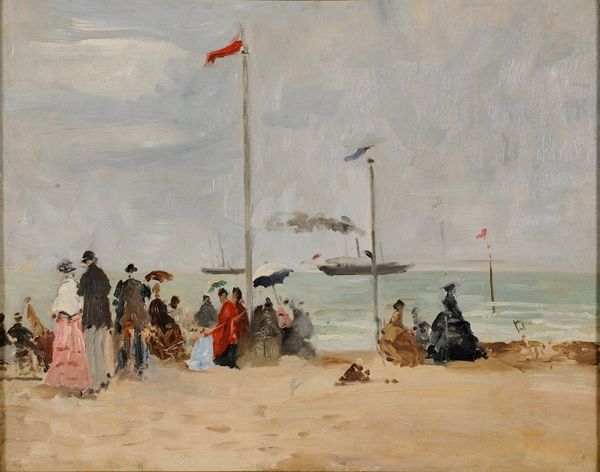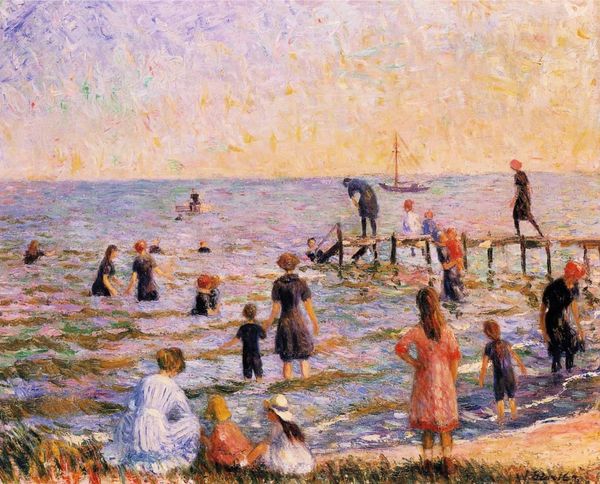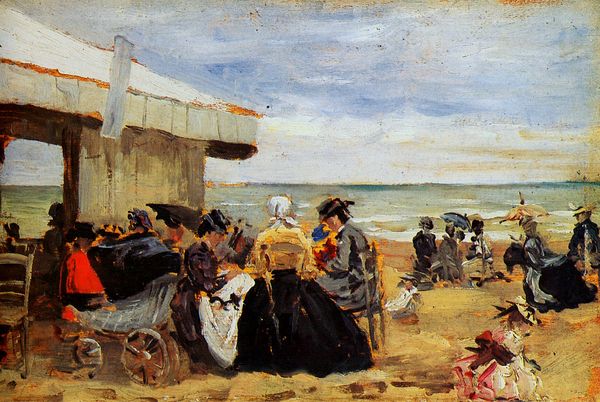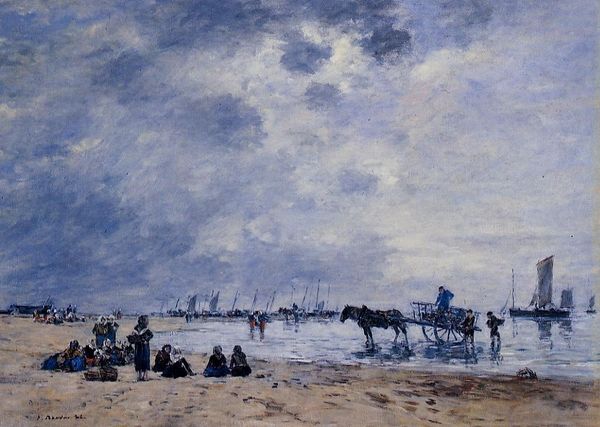
Dimensions: 38 x 46 cm
Copyright: Public domain US
Editor: So, this is Raoul Dufy's "The Beach at Sainte-Adresse," painted in 1902 using oil. It’s… brighter than I expected! Almost cheerful. What catches your eye in it? Curator: The subject matter – leisure and tourism – can't be divorced from its moment. Consider the industrialization driving the burgeoning middle class. Their newfound free time fuels a demand for these coastal escapes and the material culture surrounding it – parasols, the pier itself, the clothing. Look at the visible brushstrokes, the very application of paint. Dufy is less concerned with rendering a realistic scene, and more engaged in the act of painting and how those materials convey this shift in leisure. Editor: So, the *how* it's painted is as important as *what* is painted? Curator: Precisely! The sketch-like quality suggests spontaneity and a democratized experience. These aren’t idealized figures; they’re ordinary people consuming a commercially available leisure experience. How does this contrast with academic painting of the era? Editor: Well, academic painting was so focused on history and myth, and…flawless technique. This is almost anti-that. What about plein-air painting more broadly? Curator: Plein-air, yes, but with a distinct focus on the material reality *around* plein-air experience and production itself – the developing culture and economy *of* the beach. What does it mean that art is documenting, and also participating in, consumer culture? Editor: It’s fascinating to consider this cheerful scene as evidence of bigger economic shifts, revealed through the very materiality of the painting! Curator: Exactly! We see leisure become industrialized through painting materials and brushwork! Dufy lets us consider class, labor, and landscape, all at once.
Comments
No comments
Be the first to comment and join the conversation on the ultimate creative platform.
